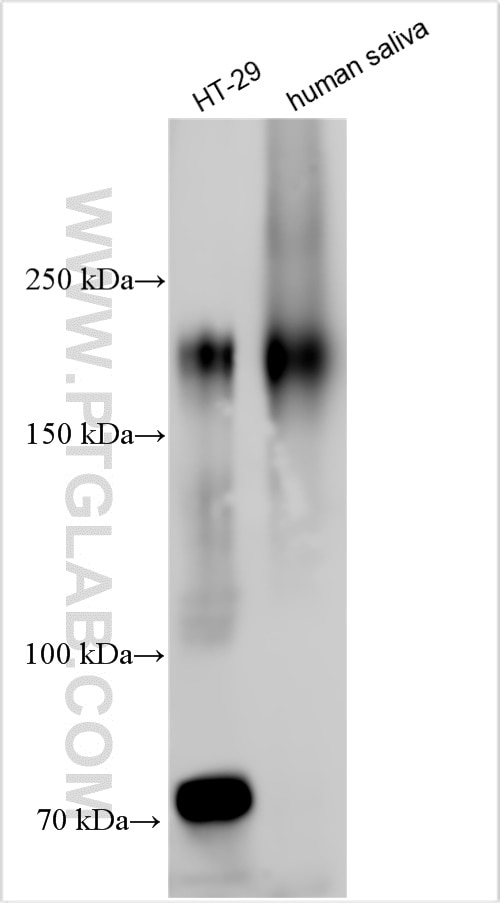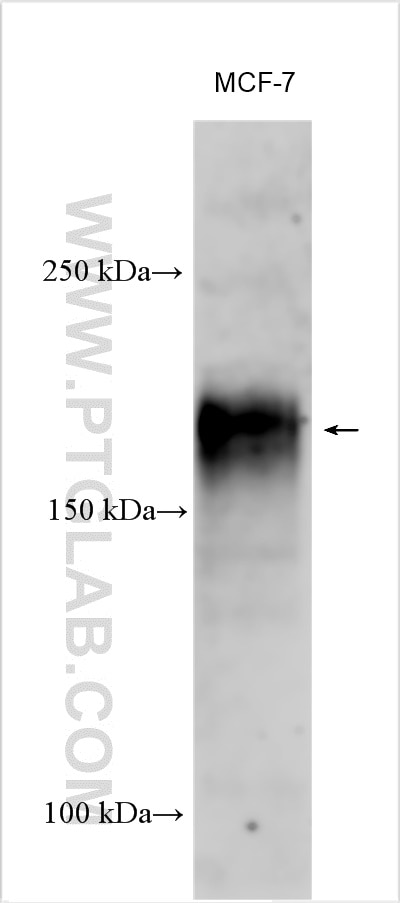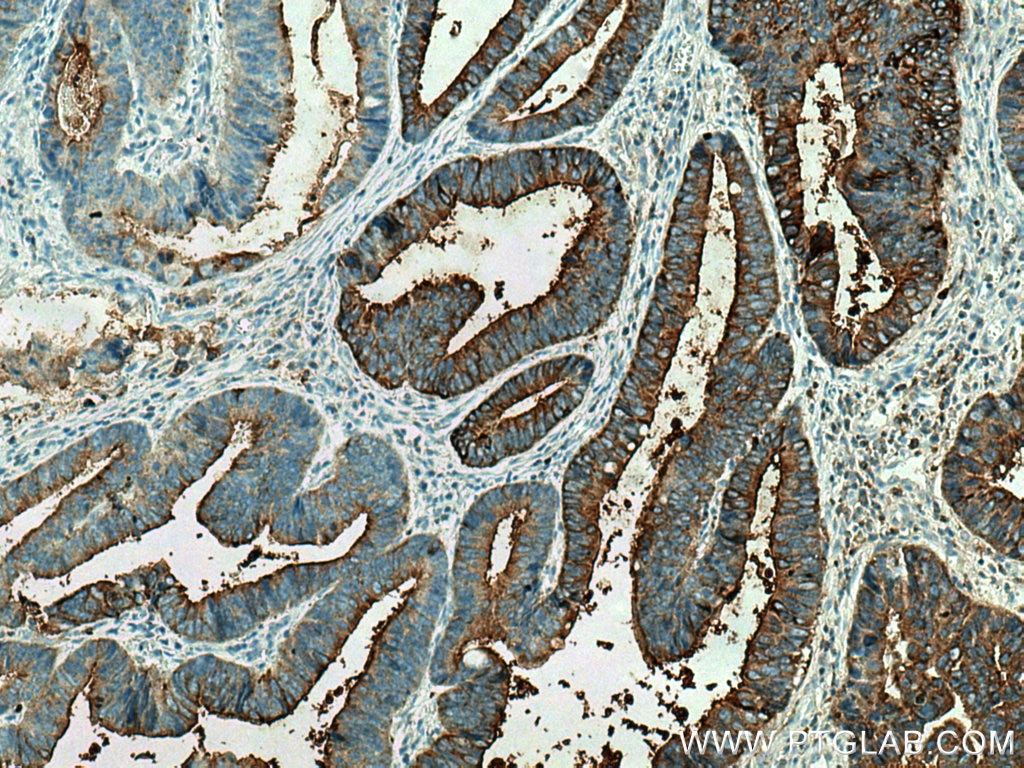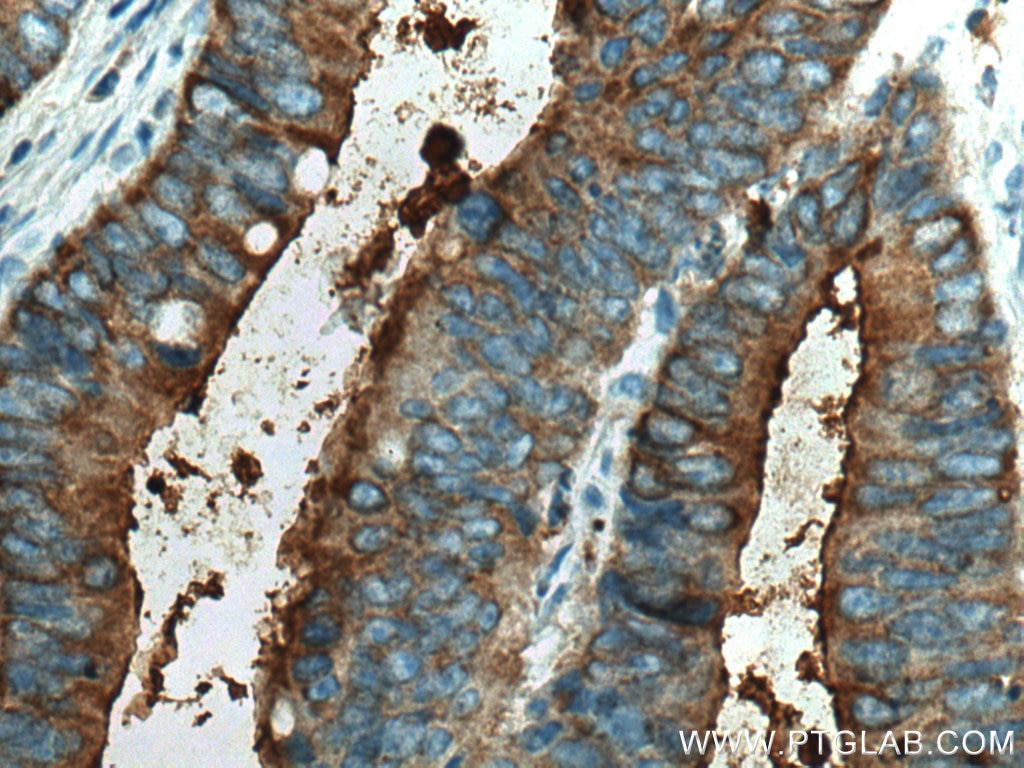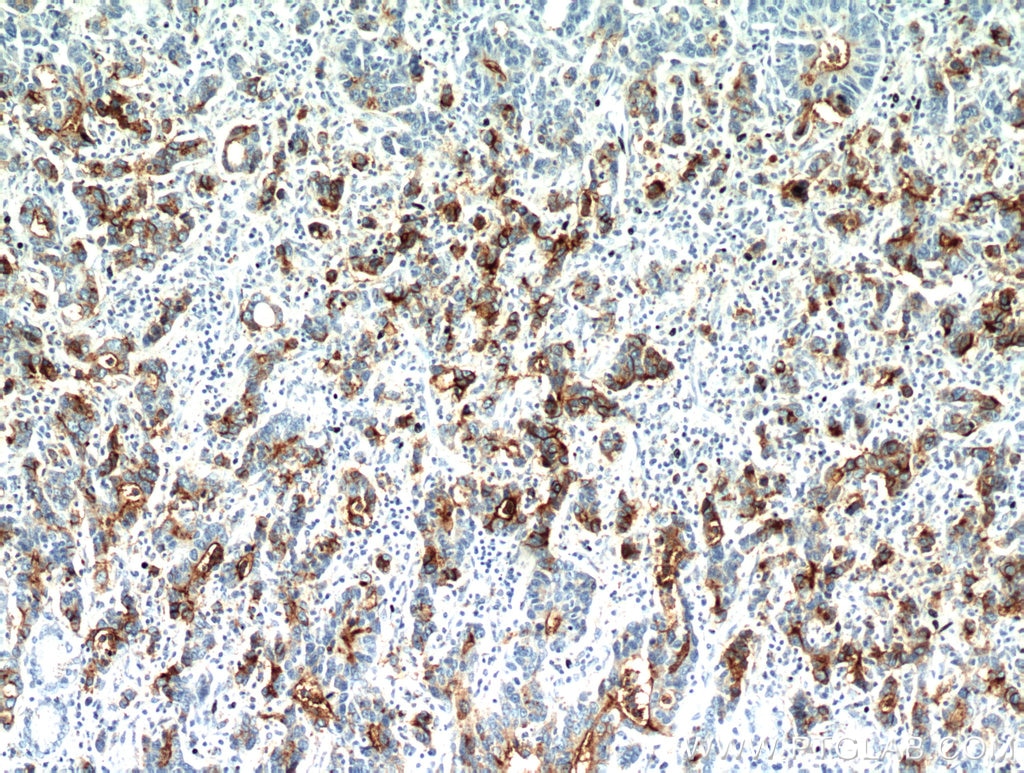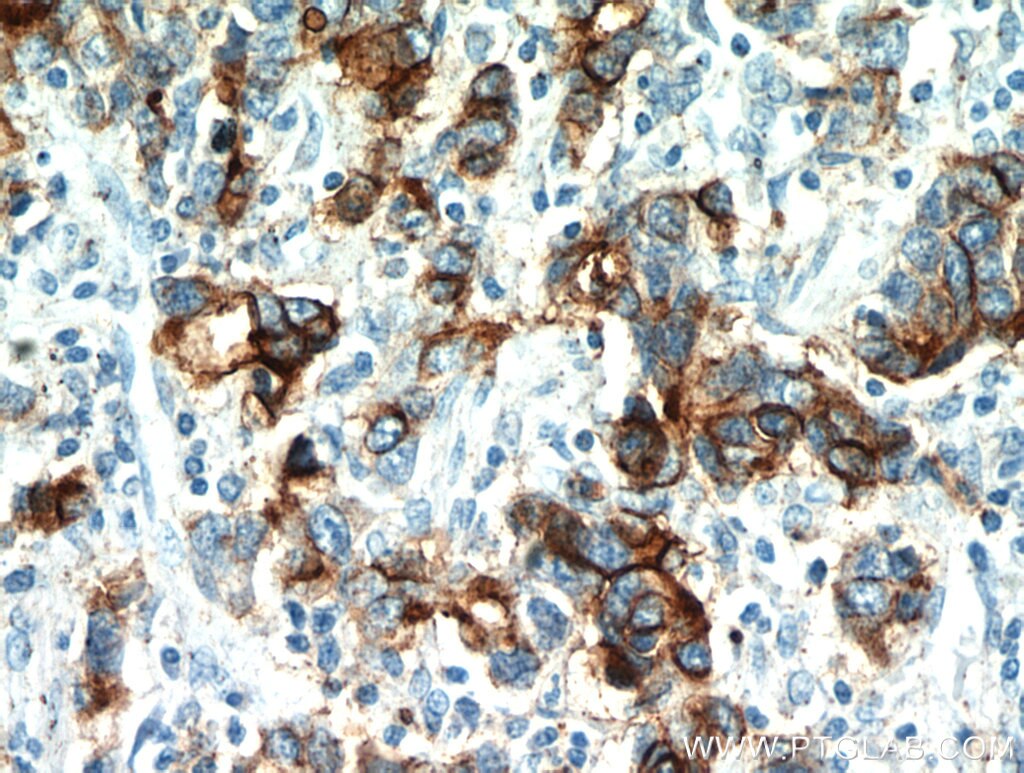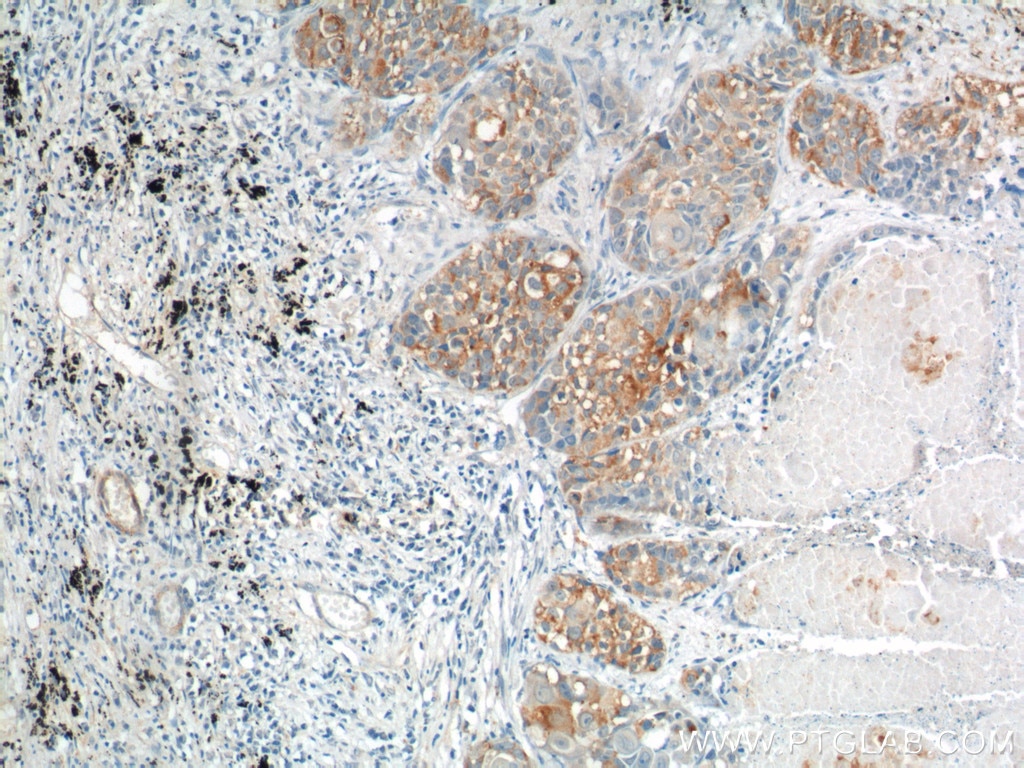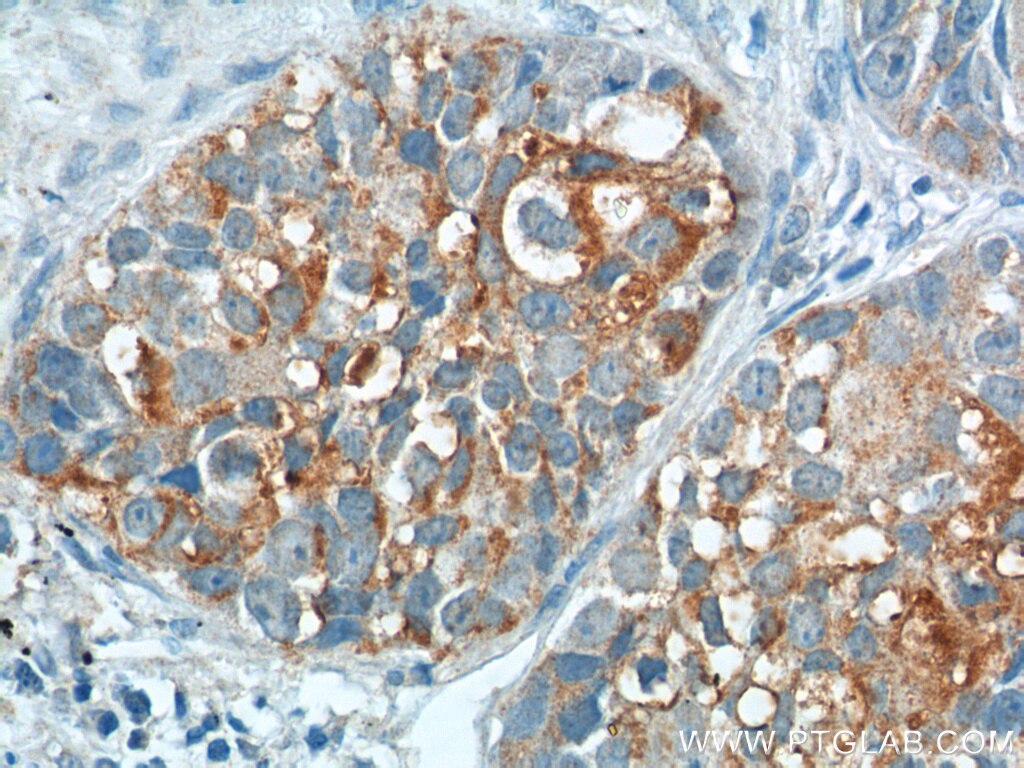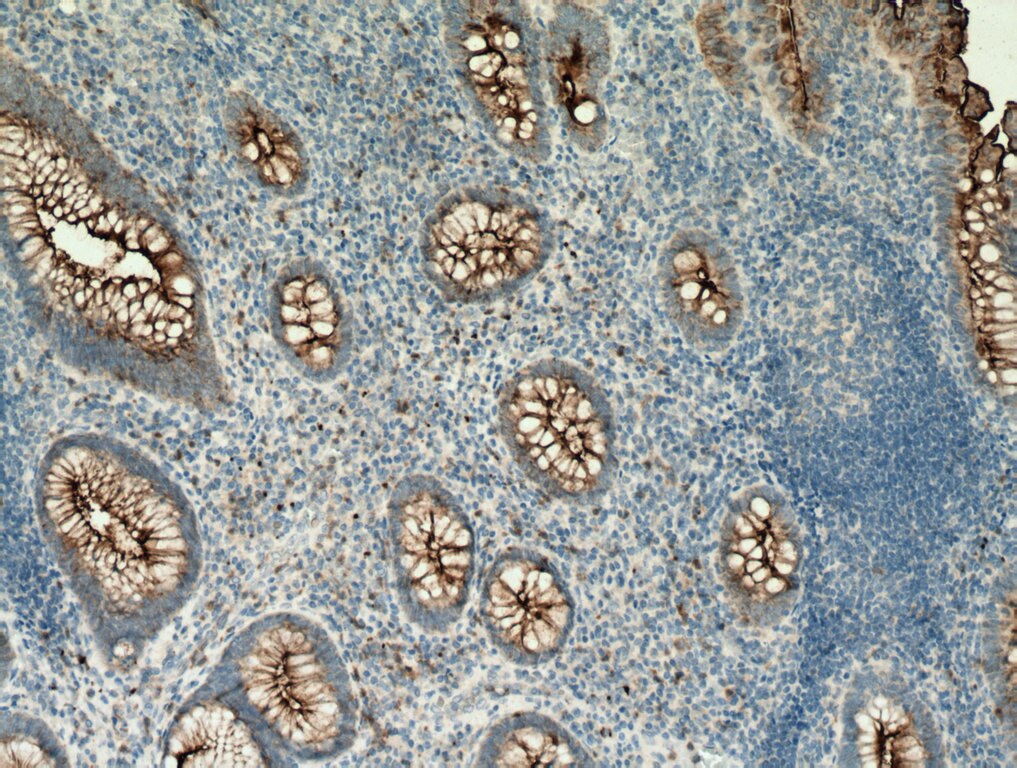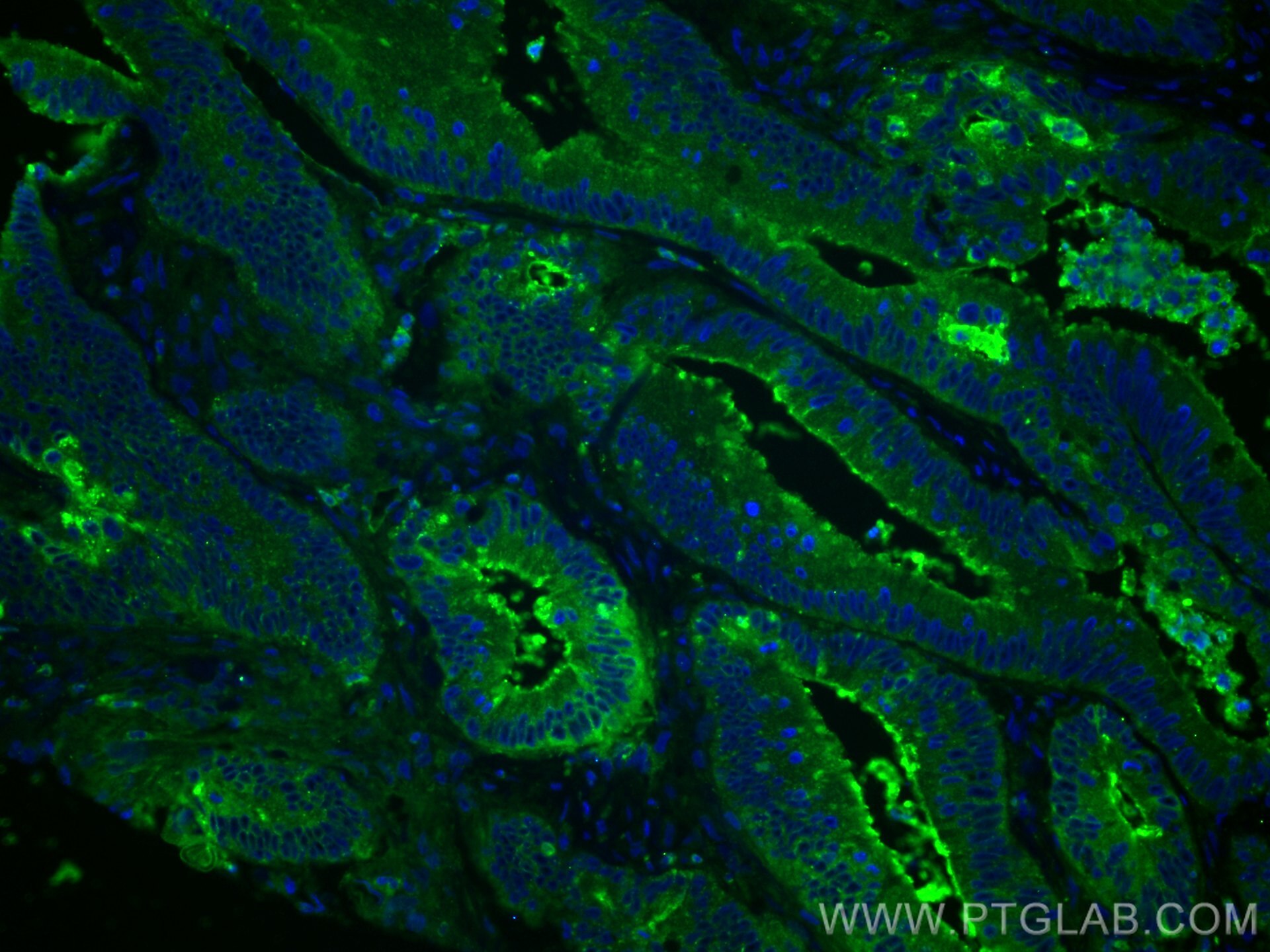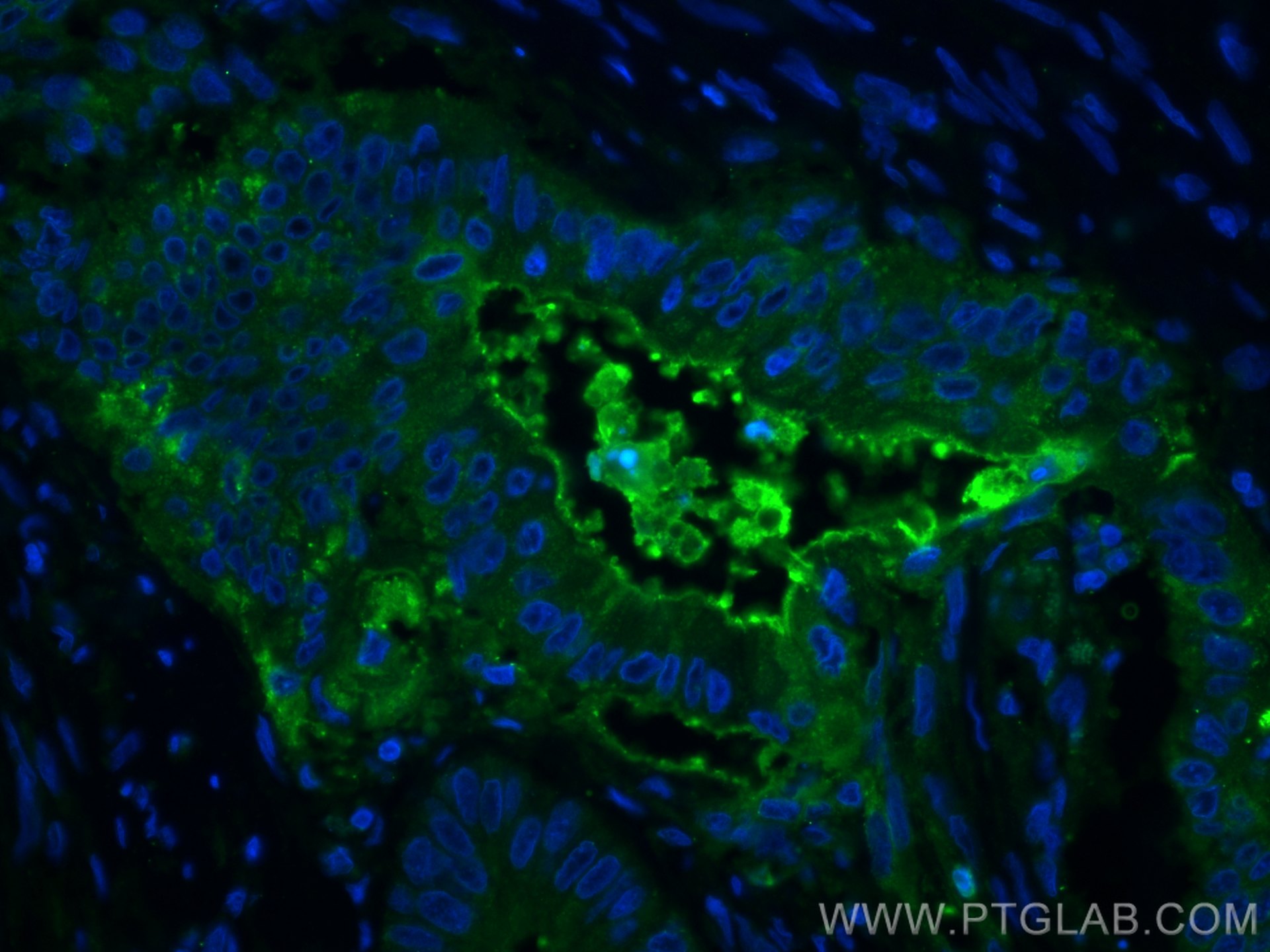- Phare
- Validé par KD/KO
Anticorps Polyclonal de lapin anti-CEA/CD66e
CEA/CD66e Polyclonal Antibody for WB, IHC, IF-P, ELISA
Hôte / Isotype
Lapin / IgG
Réactivité testée
Humain et plus (1)
Applications
WB, IHC, IF-P, chIP, ELISA
Conjugaison
Non conjugué
N° de cat : 10421-1-AP
Synonymes
Galerie de données de validation
Applications testées
| Résultats positifs en WB | cellules HT-29, cellules MCF-7, salive humain, salive humaine |
| Résultats positifs en IHC | tissu de cancer du côlon humain, tissu d'appendicite humain, tissu de cancer de l'estomac humain, tissu de cancer du poumon humain il est suggéré de démasquer l'antigène avec un tampon de TE buffer pH 9.0; (*) À défaut, 'le démasquage de l'antigène peut être 'effectué avec un tampon citrate pH 6,0. |
| Résultats positifs en IF-P | tissu de cancer du côlon humain, |
Dilution recommandée
| Application | Dilution |
|---|---|
| Western Blot (WB) | WB : 1:500-1:2000 |
| Immunohistochimie (IHC) | IHC : 1:200-1:800 |
| Immunofluorescence (IF)-P | IF-P : 1:50-1:500 |
| It is recommended that this reagent should be titrated in each testing system to obtain optimal results. | |
| Sample-dependent, check data in validation data gallery | |
Applications publiées
| KD/KO | See 1 publications below |
| WB | See 5 publications below |
| IHC | See 4 publications below |
| ChIP | See 1 publications below |
Informations sur le produit
10421-1-AP cible CEA/CD66e dans les applications de WB, IHC, IF-P, chIP, ELISA et montre une réactivité avec des échantillons Humain
| Réactivité | Humain |
| Réactivité citée | Humain, souris |
| Hôte / Isotype | Lapin / IgG |
| Clonalité | Polyclonal |
| Type | Anticorps |
| Immunogène | CEA/CD66e Protéine recombinante Ag0672 |
| Nom complet | carcinoembryonic antigen-related cell adhesion molecule 5 |
| Masse moléculaire calculée | 77 kDa |
| Poids moléculaire observé | 180-200 kDa, 77 kDa |
| Numéro d’acquisition GenBank | BC034671 |
| Symbole du gène | CEA |
| Identification du gène (NCBI) | 1048 |
| Conjugaison | Non conjugué |
| Forme | Liquide |
| Méthode de purification | Purification par affinité contre l'antigène |
| Tampon de stockage | PBS with 0.02% sodium azide and 50% glycerol |
| Conditions de stockage | Stocker à -20°C. Stable pendant un an après l'expédition. L'aliquotage n'est pas nécessaire pour le stockage à -20oC Les 20ul contiennent 0,1% de BSA. |
Informations générales
Carcinoembryonic antigen (CEA), also known as CEACAM5 or CD66e, is a cell surface glycoprotein belonging to the immunoglobulin superfamily, mainly serving as a cell adhesion molecule mediating intercellular contact by both homophilic and heterophilic binding (PMID: 21731662). CEA inhibits anoikis and plays a role in tumorigenesis and metastasis. CEA has been found to be overexpressed in a wide variety of human cancers, including colon, breast, and lung (PMID: 17167768). CEA is a tumor marker and is routinely exploited for diagnosis.
Protocole
| Product Specific Protocols | |
|---|---|
| WB protocol for CEA/CD66e antibody 10421-1-AP | Download protocol |
| IHC protocol for CEA/CD66e antibody 10421-1-AP | Download protocol |
| IF protocol for CEA/CD66e antibody 10421-1-AP | Download protocol |
| Standard Protocols | |
|---|---|
| Click here to view our Standard Protocols |
Publications
| Species | Application | Title |
|---|---|---|
Transl Res Molecular signature of interleukin-22 in colon carcinoma cells and organoid models. | ||
J Cell Mol Med CD39 Contributes to the Ability of Cell Invasion in Heterogeneity of Colorectal Cancer | ||
Int J Biol Sci FBW7 suppresses metastasis of colorectal cancer by inhibiting HIF1α/CEACAM5 functional axis.
| ||
Gene Ther Lentivirus-mediated RASSF1A expression suppresses aggressive phenotypes of gastric cancer cells in vitro and in vivo. | ||
World Neurosurg Discovery of Aquaporin-1 and Aquaporin-4 Expression in an Intramedullary Spinal Cord Ependymal Cyst: Case Report. | ||
PLoS One Correlation of alpha-1 antitrypsin levels and exosome associated neutrophil elastase endothelial injury in subjects with SARS-CoV2 infection |
Avis
The reviews below have been submitted by verified Proteintech customers who received an incentive for providing their feedback.
FH Claire (Verified Customer) (09-30-2024) | A repeat order of an antibody previously used in colorectal adenocarcinoma research as this produced excellent images previously, we are now aiming to optimise this antibody for pancreatic work
|
